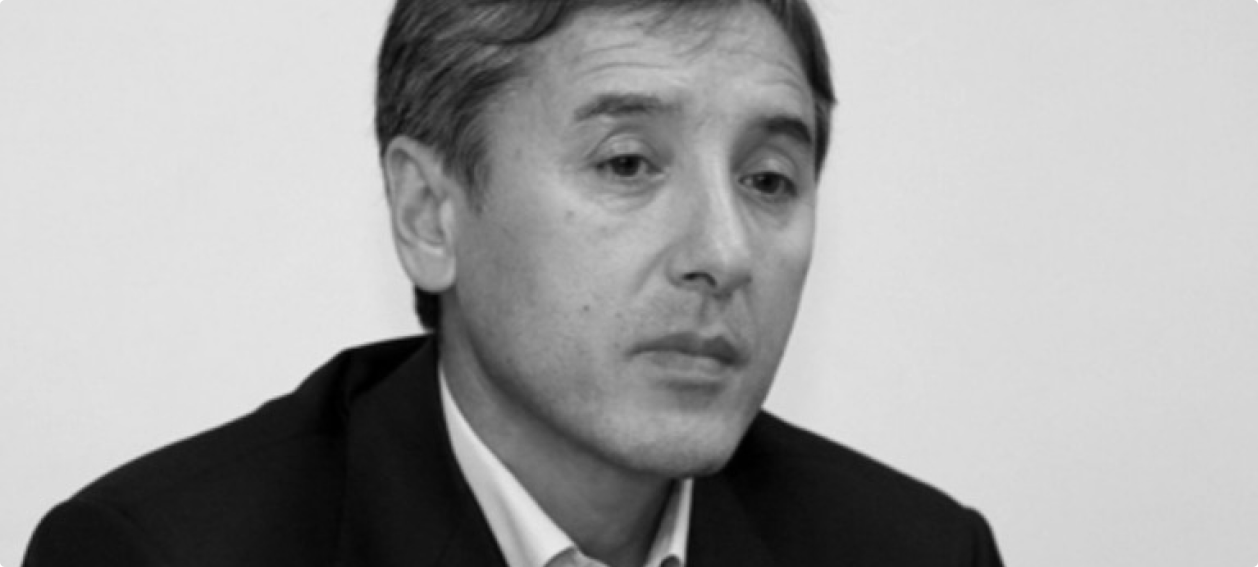Bulat Abilov

Bulat Abilov was among the original oligarchs to exploit the chaos that unfolded in the post-Soviet era of privatisation in the 1990s. The alleged underhand tactics he used to line his pocket were picked straight from the oligarch playbook.
After years in the political wilderness, Bulat Abilov has resurfaced in recent months as the face of Kazakhstan’s opposition movement. As leader of Elge Qaitaru (the Foundation for Asset Recovery), Abilov has sought to reinvent himself as a man of the people. The businessman demanded the renationalisation of Kazakhstan’s vast natural assets and poured scorn on the country’s despotic ex-president Nursultan Nazarbayev.
He has even travelled to the UK to spread his message and was granted an audience with Margaret Hodge, the veteran Labour MP and longstanding anti-corruption campaigner. However, Abilov’s invectives have drawn uncomfortable accusations that he owes much of his financial success to Nazarbayev’s patronage in the 1990s, with some reports suggesting he is even related to Nazarbayev’s wife Sara.
Early years
In 1991, Abilov established his investment fund Butya Capital and quickly set about buying up shares in formerly state-owned companies. Butya purchased privatisation vouchers from millions of Kazakh citizens, enabling Abilov to accumulate shares in natural resources enterprises such as the Karanganda Metalworks (Karmet), Aktobemunaygaz and Shymkent Phosphorous Plant. Meanwhile, individuals were also able to invest in these companies through Butya, from which they were entitled to dividends.
However, critics have accused Abilov of swindling the ordinary Kazakhs who entrusted him with their money. Although he maintains that Butya was the only private fund at the time to pay dividends to Kazakh citizens, allegations have since emerged that Abilov exchanged the vouchers for shares and then in fact sold these shares for funds which he kept for himself, instead of distributing among the two million other investors
Enters politics
Butya Capital remained active until 2000, at which point Abilov left the business scene and went into politics. Abilov was initially a Nazarbayev loyalist and served as a parliamentary deputy with the ruling Nur Otan party.
In 2001, Abilov was among the founding members of the Democratic Choice of Kazakhstan (DVK), a loose coalition of businessmen and politicians including the fugitive banker Mukhtar Ablyazov. Abilov openly financed the party but two days after its first press conference, then-Prime Minister Kassym-Jomart Tokayev advised Nazarbayev to remove some of elites from their official posts. Some opted for loyalty while others, including Abilov, splintered off to form the Ak Zhol party. Abilov became chairman while the chairman of the Central Bank and ex-deputy prime minister Oraz Jandosov also took on a prominent role.
In 2005, after an internal schism, Abilov and Zhandosov launched a breakaway Ak Zhol faction called Nagyz Ak Zhol which enjoyed little electoral success and became a glorified protest movement. In November 2006, Kazakhstan’s financial regulators launched an investigation into Butya on charges of embezzlement and tax evasion. The previous year, an investigation was launched into $3.5 million of suspected unpaid tax owed by him, which reportedly remains open. Abilov has also faced cases of libel and assaulting a police officer. Embattled on the business front, Abilov stayed in politics to little effect until withdrawing from the arena in 2013.
Solar energy businesses
Outside politics, Abilov re-entered business in 2016, notably in Kazakhstan’s burgeoning renewables industry with his longstanding political ally Oraz Jandosov. Abilov and Jandosov entered a joint venture with Universal Energy, a Chinese company committed to developing the Chinese government’s expansionist Belt and Road policy across Central Asia. The joint venture embarked on half a dozen solar projects across Kazakhstan worth a reported $400 million.
In 2018, the joint venture oversaw the largest solar plant in Kazakhstan in the city of Kapshagay, in the Almaty region. But questions were soon raised about how Abilov had obtained the 400 hectares of land used for the solar park in a public auction. Critics called for an investigation into the process after drawing attention to the fact that at the time of the land allocation there was a moratorium on the sale and lease of land to foreigners. In June 2022, Abilov announced that he would give up all his business interests in order to reenter politics.
Re-entering the political fray
In February 2022, in the wake of Bloody January, deadly riots that had swept across the country leaving thousands dead, Abilov held a rally in which he revealed plans to launch “a fund to help those illegally detained and have already provided support to several dozen families”. In an interview with Deutsche Welle, he said that “for the time being, I act as a public figure and a caring person. I invited people here to commemorate and spoke a few words…I say we change the name of Nazarbayev Street into January Street! Let’s repeal the Law on the First President and strip [Nazarbayev] of his privileges!” Abilov told a crowd.
Elge Qaitaru (the Foundation for Asset Recovery) has since demanded that President Tokayev renationalise vast swathes of the country’s privately-owned assets. Abilov has also signed a memorandum of understanding with Zagranburo, a Kazakh opposition organisation headed by Germany-based dissident Serik Medetbekov and former Kazakh prime minister Akezhan Kazhegeldin. The partnership proved controversial, however, given Kazhegeldin is alleged to have received around $6 million in bribes as part of a huge Kazakh bribery scandal known as Kazakhgate.
Next story: Kazakh human rights campaigner Bulat Abilov linked to forced labour camps in China